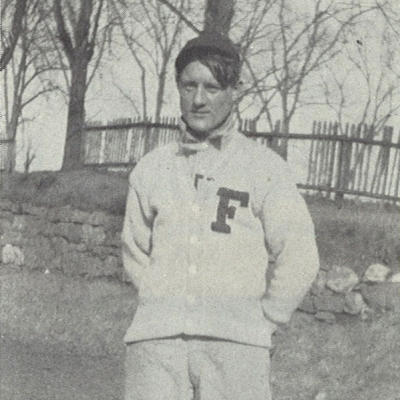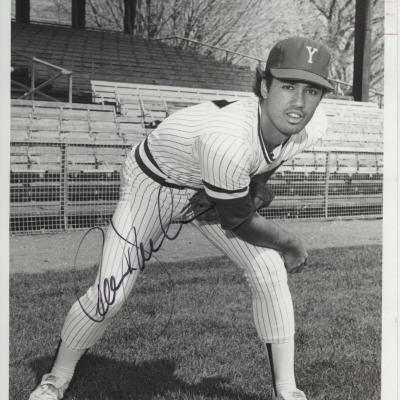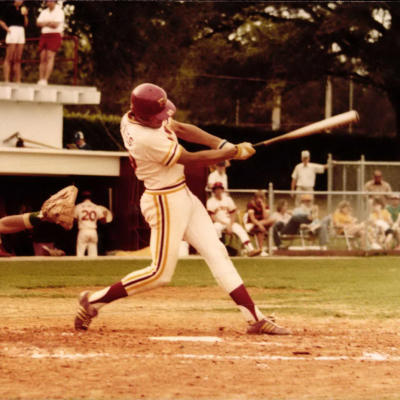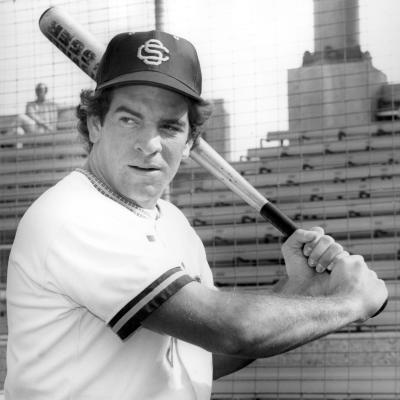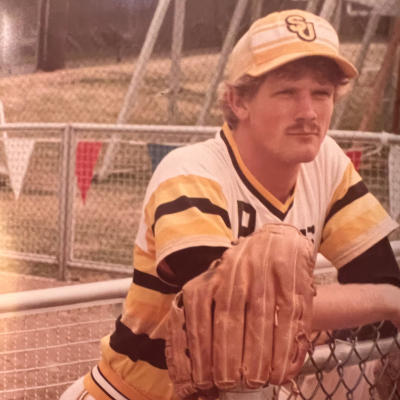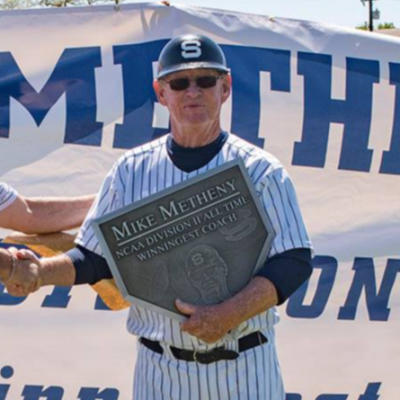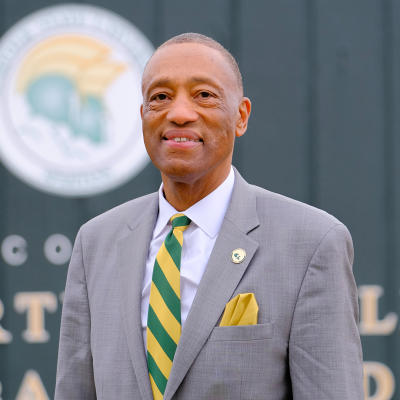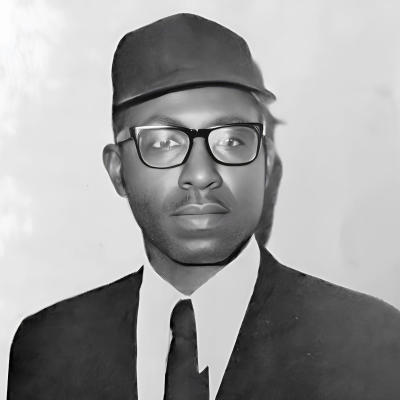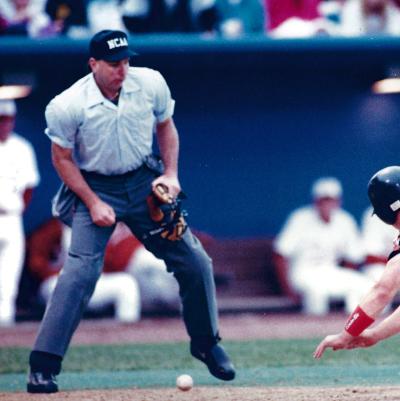The 2023 College Baseball Hall of Fame
The College Baseball Foundation has announced the names of twelve new members of the College Baseball Hall of Fame. The 16th induction class will be honored at the Night of Champions presented by Prairiefire on February 15, 2024 in Overland Park, Kansas.
The class is comprised of players, coaches, umpires and administrators – all who have contributed to college baseball history at the NCAA, NAIA and NJCAA levels.
Highlighting the 2023 class are six players, two of which had successful Major League Baseball careers and whose successes were shaped at the college level: Alex Gordon, three-time MLB All-Star and World Series Champion with the Kansas City Royals and Ron Darling, MLB All-Star, World Series Champion and Gold Glove Award winner with the New York Mets. The class also includes four coaches and two former umpires with storied histories in the college game. Three inductees will be honored posthumously.
- Chris Bando, Arizona State
- Pat Casey, George Fox College/Oregon State
- Jack Coffey, Fordham
- Ron Darling, Yale
- Mike Fuentes, Florida State
- Alex Gordon, Nebraska
- Steve Kemp, Southern California
- Russell Martin, Southwestern
-
Mike Metheny, Southeastern Oklahoma State
-
Marty Miller, Norfolk State
-
C.J. Mitchell, Umpire and Pioneer
-
Tony Thompson, Umpire
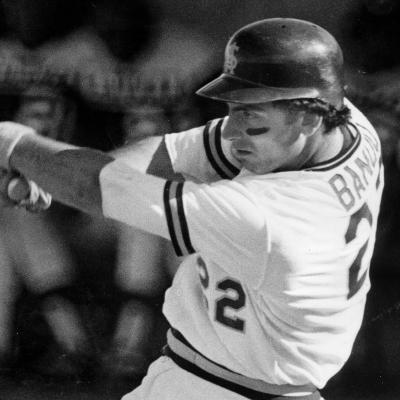 Chris Bando, Arizona State, 1975-78 (Catcher)
Chris Bando, Arizona State, 1975-78 (Catcher)
Chris Bando was an ABCA first team All-American catcher in 1978. He was named to the 1978 All-CWS team and to the 1970s Men’s College World Series All-Decade team. At the conference level, he was a two-time All-Western Athletic Conference catcher (1977 and 1978). Bando played key defensive and offensive roles on the 1977 national champion Sun Devils, hitting a 7th-inning home run to provide the winning margin in the CWS finale.
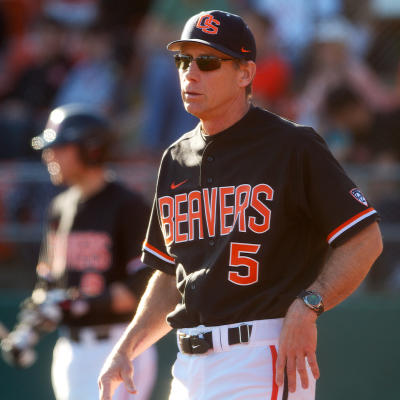 Pat Casey, George Fox College/Oregon State, 1988-2018 (Coach)
Pat Casey, George Fox College/Oregon State, 1988-2018 (Coach)
All-time, as a collegiate head coach, Pat Casey’s teams went 1,071-572-7 (.651). He went 171-114-1 (.600) in seven seasons at Division III George Fox and 900-458-6 in his 24 seasons at Oregon State (.662)
Pat Casey won 900 games at Oregon State as the Beavers' head coach from 1995-2018, guiding the program to National Championships in 2006, 2007 and 2018, and five Pac-10/12 titles. More than 20 of his players went to play at the MLB level and more than 100 were drafted by MLB organizations. Casey’s 900 wins at Oregon State ranks sixth all-time in Pac-12 Conference history.
Casey was named the National Coach of the Year in 2005, 2006, 2007, 2017 and 2018. He led the Beavers to the postseason 12 times and made it to the College World Series in 2005, 2006, 2007, 2013, 2017 and 2018.
He was selected as the Pac-10’s Coach of the Year in 2005, 2006 and 2011, and the Pac-12 Coach of the Year in 2013 and 2017. Prior to the 2010 season, Casey was named the top collegiate coach of the previous decade by Baseball America. The voting was done by fellow collegiate coaches. Oregon State was named the No. 2 program of the decade, just behind Texas.
Jack Coffey, Fordham, 1906-09 (Shortstop); 1923-58 (Coach)
Jack Coffey was the starting shortstop who led Fordham to Catholic College Championships in 1906 and again as team captain in 1909, then made his Major League debut in June 1909. Coffey served as part-time coach while playing for the Boston Braves, Boston Red Sox and Detroit Tigers. He became full-time coach in 1923 and added Athletics Director to his title in 1926. He was the first college coach to win 1,000 games, and he led his teams to five Eastern titles, 14 Metropolitan titles and coached 18 future Major Leaguers. Coffey was elected to the Helms Foundation College Baseball Hall of Fame in 1954, and Fordham named its football and baseball fields after him that year. He also was a charter member of the American Baseball Coaches Association (ABCA) Hall of Fame in 1966.
Ron Darling, Yale, 1979-81 (Pitcher/Outfield)
While Ron Darling competed as a two-way player with a .384 batting average and a .589 slugging percentage as a sophomore, his performance on the mound is where he was most dominant. In 1980, his 11-2 record with two saves and 1.31 ERA was the fifth best in the nation. That same year he was named Eastern Intercollegiate Baseball League Pitcher of the Year and Third-team ABCA All-American. The following season was highlighted by an 11 no-hit innings against St. John’s University in an NCAA regional game, only to lose 1-0 in the 12th inning. Darling ended the season with a 9-4 record with a 2.14 ERA and 105 Ks. His collegiate career concluded with 25 consecutive complete games, 23 wins, 236 strikeouts and a career 2.18 ERA. He was drafted in the first round (#9 overall) by the Rangers in June 1981 MLB Draft.
Mike Fuentes, Florida State, 1978-81 (Outfield)
Mike Fuentes was twice named the Metro Conference Tournament's MVP. In 1980 and 1981, he was named to the ABCA’s and The Sporting News All-America teams. Additionally, Baseball American names Fuentes to its All-America team in 1980. The Coral Gables native became the fourth Seminole to hit .400 in a season when he hit .408 as a junior while leading Florida State into the 1980 College World Series. He capped a brilliant career with a senior season that included 27 home runs, 81 RBIs and a .360 average. During that storybook season, he broke Arizona State Slugger Bob Horner's NCAA career home run mark, finishing with 64. At the conclusion of Fuentes’ career at FSU, he led all of NCAA Division I in career home runs. Fuentes also hit .377 and drove in 182 runs over his four-year career. He was the 1981 Golden Spikes Award winner and one of Florida State's top student-athletes. Fuentes was a second-round draft choice of the Montreal Expos in 1981.
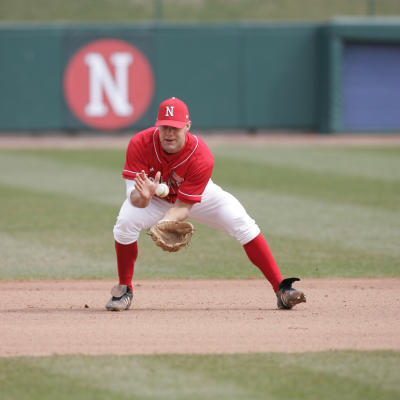 Alex Gordon, Nebraska, 2004-06 (Third Base)
Alex Gordon, Nebraska, 2004-06 (Third Base)
In his final season at Nebraska, Gordon led the Huskers to a sweep of the Big 12 regular-season and tournament titles, hitting .372 with 19 homers, 66 RBIs and 23 stolen bases. A two-time Big 12 Player of the Year, Gordon led the conference in six categories and ranked among the league leaders in all 12 offensive categories. He became the first player since Baylor’s Jason Jennings to repeat as Big 12 Player of the Year.
His induction into the College Baseball Hall of Fame marks the second recognition from the College Baseball Foundation. In 2005, Gordon was the named the Brooks Wallace Award Winner which recognizes the nation’s most outstanding college shortstop. Gordon earned numerous conference and national accolades throughout the course of his college career:
- 2005 USA Baseball Golden Spikes Award Winner
- 2005 Xanthus Dick Howser Trophy Winner
- 2005 ABCA National Player of the Year
- 2005 Baseball America National Player of the Year
- 2005 ESPY Award Finalist for Male College Athlete of the Year
- 2005 Omaha World-Herald Ware Award Winner
- 2005 Lincoln Journal Star Husker Athlete of the Year
- Two-time NCBWA District VI Player of the Year
- Two-time First-Team All-American (ABCA, Collegiate Baseball, Sports Weekly, Baseball America, NCBWA)
- Two-time Big 12 Player of the Year (Coaches)
- Two-time Howser Award Finalist
- Two-time ABCA All-Midwest Region Team
- Two-time Big 12 All-Tournament Team
- 2005 NCAA Lincoln Regional All-Tournament Team
- 2005 Big 12 All-Tournament Team
- 2004 First-Team Summer All-American (Baseball America)
- 2004 U.S. National Team Member
- 2003 Collegiate Baseball Freshman All-American
- 2003 Big 12 Freshman of the Year (Waco Tribune)
Steve Kemp, Southern California, 1973-75 (Outfield)
One of the greatest hitters in USC history, Steve Kemp batted .435 in the 1975 season while leading the Trojans to the final of five consecutive College World Series appearances. He received First-team All-American honors in 1975 from both the ABCA and Sporting News. He batted .351 with five home runs for the 1974 national champion Trojans. He finished with a school record career mark of .397. Kemp was drafted No. 1 overall by the Detroit Tigers in the 1976 draft and proceeded to play over a decade in the Majors with five teams.
Russell Martin, Southwestern, 1982-85 (Pitcher)
Russell Martin amassed outstanding statistics as a baseball pitcher during his career with the Southwestern Pirates which included setting the national record for wins in the NAIA (46 wins). He helped lead the Pirate baseball team to two consecutive trips to the NAIA World Series, at one of which the Pirates finished third in the nation. In their second trip to nationals, Martin was chosen to the World Series All-Tournament Team. He also earned NAIA First Team All-America honors twice, as a sophomore in 1983 and again as a senior in 1985.
Mike Metheny, Southeastern Oklahoma State, 1981-2017 (Coach)
Mike Metheny guided the SE baseball program through its successful transition from NAIA to NCAA Division II. In just the second season at the Division II level, he led his squad to the 2000 NCAA Division II World Series in Montgomery, Ala., winning its first National Championship. The title earned him the 2000 National Coach of the Year honor at the American Baseball Coaches Convention.
While a member of the NAIA, Metheny’s teams made seven trips to the NAIA World Series and earned three runner-up finishes. His teams claimed 15 conference championships, and he earned conference coach of the year honors nine times and regional coach of the year seven times. With a record of 1,324-679 (.661), Metheny remains the winningnest coach in NCAA Division II history.
Marty Miller, Norfolk State, 1973-2005 (Coach)
A former Spartan NCAA Division II All-American in 1968 (batting .380 as a sophomore, .438 as a junior and .406 as a senior and leading the country in doubles per game), Marty Miller began a 33-year coaching career at his alma mater in 1973. Over that period, coach Miller accumulated a record of 718-543-3 for a .569 winning percentage. In the 24 seasons Miller coached teams in the Central Intercollegiate Athletic Association (CIAA) before moving to the Mideastern Athletic Conference (MEAC) in 1997, his Norfolk State squads won 17 conference championships. In one stretch, Miller won eight straight titles. Miller led his teams to 12 post- season appearances and was named the CIAA Coach of the Year 15 times. He produced six All-Americans and 22 of his former players signed pro contracts. Miller is a member of both the Norfolk State and CIAA Hall of Fame and was the Athletic Director of Norfolk State from 2004 to 2020.
C.J. Mitchell, College Umpire and Pioneer
C.J. Mitchell rose to become the first black college umpire in the Pacific 8 Conference (now known as the Pac-12 Conference). Mitchell’s experience as a baseball umpire included 35 years as a conference umpire, a six-time NCAA Regional umpire, a 10-time NAIA World Series umpire and a four-time NCAA Division I World Series umpire, as well as a six-time American Legion World Series baseball umpire. Mitchell was also an umpire for the 1984 and 1988 United States Olympic Baseball Teams. Mitchell umpired during the 1976, 1977, 1980 and 1981 College World Series. Records indicate that C.J. Mitchell was one of the first three black umpires to work the College World Series.
- 4 NCAA Men’s College World Series (1976, 1977, 1980 and 1981)
- 35 years as a Pac-8/Pac-10 umpire
- 10 NAIA World Series
- 6 American Legion World Series
- 4 Washington State High School Baseball Championships
- 12 years in (professional) Class A Northwest League
- 2000 inductee of Amateur Baseball Umpires Association Hall of Fame
Tony Thompson, 1978-2018 (Umpire)
Tony Thompson’s impact on college baseball is unparalleled through his contributions as a long-time umpire, official and trainer. At the Division I level, he has umpired the Men’s College World Series and 11 Regionals as well as 15 Southeastern Conference, 10 Atlantic Coast Conference and one Sun Belt Conference tournaments. He has also umpired at the Division II Baseball Championships. His expertise and skill led him to several conference administrative positions (ACC, Southern, USA South, Peach Belt, Southern States Athletic, Ohio Valley, Sun Belt, Big South, Atlantic 10, SEC, Trans South Athletic) in which he is still active today. He has also taken leadership roles as commissioner of the Southern Collegiate Umpires Association, member of the Division I National Umpire Committee and as an NCAA Regional umpire evaluator. He also brought about positive change in the umpiring ranks by developing the first neutral conference umpire staff (SEC) and by nominating and achieving the most minority umpires selected in the NCAA Division I Regionals, Super Regionals and College World Series. He hosted the first umpire super clinic which eventually became the NCAA Umpire clinics, participated in the implementation of the :20 pitch clock and implemented the first conference use of four-man umpire crews during regular season (SEC).


